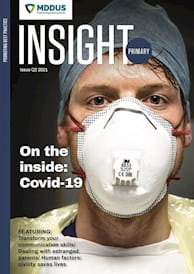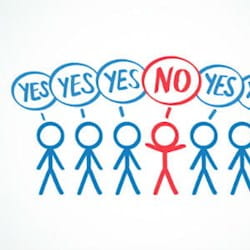I HAD a hypocritical moment recently. I was asked about participation in a network which hosts regular meetings. I spoke about the importance of collaboration, participation, systemic working, improving the collective experience and sharing learning. I meant it all. I did though have to acknowledge, before extolling the virtues of the network, that I was a hypocrite because I have attended only two out of five meetings to date. The other participants were forgiving. A couple of people may even have smiled wryly in recognition, or perhaps that is wishful projection. It made me reflect on hypocrisy and wonder whether it might have a moral function that is underacknowledged.
Hypocrisy is often cited as one of the most egregious ethical missteps. We point out, sometimes with unedifying glee, when someone has transgressed in ways that are counter to a previously stated position. Hypocrisy is an assault on trustworthiness and credibility. It is an undermining and unappealing phenomenon which generates strong (and often also unappealing) emotions in others. Yet hypocrisy is also inevitable. It may even be a defining human characteristic. Perhaps that is why we react strongly when we see it in others. There is little, in my experience, as painful as recognising an unavoidable truth about our own limitations and failings.
I wonder whether hypocrisy though is always, and entirely, negative?
First, hypocrisy is a check against righteousness. I have long worried about the potential for ethical discourse to become pious, judgemental and, ultimately, righteous. To borrow from Freud, our super ego and acts of supererogation may lead to ethical and selfless behaviour. However, they can also be harsh, intolerant, judging and morally superior drivers that mean we "other" people.
By recognising that we are capable of and indeed often demonstrate hypocrisy, we mitigate the potential for righteousness. It stops the superego in its tracks when we realise that much as we might pontificate or construct a beautifully argued case for a particular normative action, we are flawed and often unable to meet our own high standards.
Secondly, hypocrisy can be a prompt for other desirable qualities and behaviours. Hypocrisy makes me understand, empathise and forgive others. Hypocrisy engenders humility. It is hypocrisy that causes me to strive to do better in future. Hope that I will do and become more thoughtful, consistent and considered in everyday ethical choices is underpinned by the realisation that my ethical work is never done.
My hypocrisy reminds me daily, sometimes hourly, against thinking I might have answers to how to lead a good life. The notion that there is a good way to live that is worth pursuing is reinforced by those very moments when I don’t meet the expectations that I have of myself and others.
Hypocrisy only exists because there is a moral dimension to our relationships and choices. It reflects the complexity and difficulty of ethics in practice. Hypocrisy is a salutary reminder that everyone is learning to navigate how to ‘be good’ and how to fail together. Hypocrisy elucidates the gap between talking about ethics and being ethical, especially when there are forces at work that make it difficult. It affirms that ethics exist in context not a textbook.
What does this mean then for my participation in the network? Recognising and acknowledging the hypocrisy out loud was perhaps itself a small moral act. It created a space where we could admit and forgive our fallibility. It situated me as someone who gets it wrong often but wants to do better. I hadn’t attended the meetings for many reasons, or perhaps, those were excuses. It forced me to examine those reasons, or probable excuses. I had to take accountability for prioritising other tasks over something that I said I considered to be important. I had to navigate the dissonance between my declared view that I should be attending the network and my failure to do so. It gave me pause to consider why I thought the moral imperative to participate in the network mattered and to restate my commitment to the work.
The next steps should be attendance and action not self-flagellation. Most vitally, it reminded me that we are all ethical works in progress, especially ethicists.
Deborah Bowman, Emeritus Professor of Bioethics, Clinical Ethics and Medical Law at St George’s, University of London
This page was correct at the time of publication. Any guidance is intended as general guidance for members only. If you are a member and need specific advice relating to your own circumstances, please contact one of our advisers.
Read more from this issue of Insight Primary

Save this article
Save this article to a list of favourite articles which members can access in their account.
Save to library
